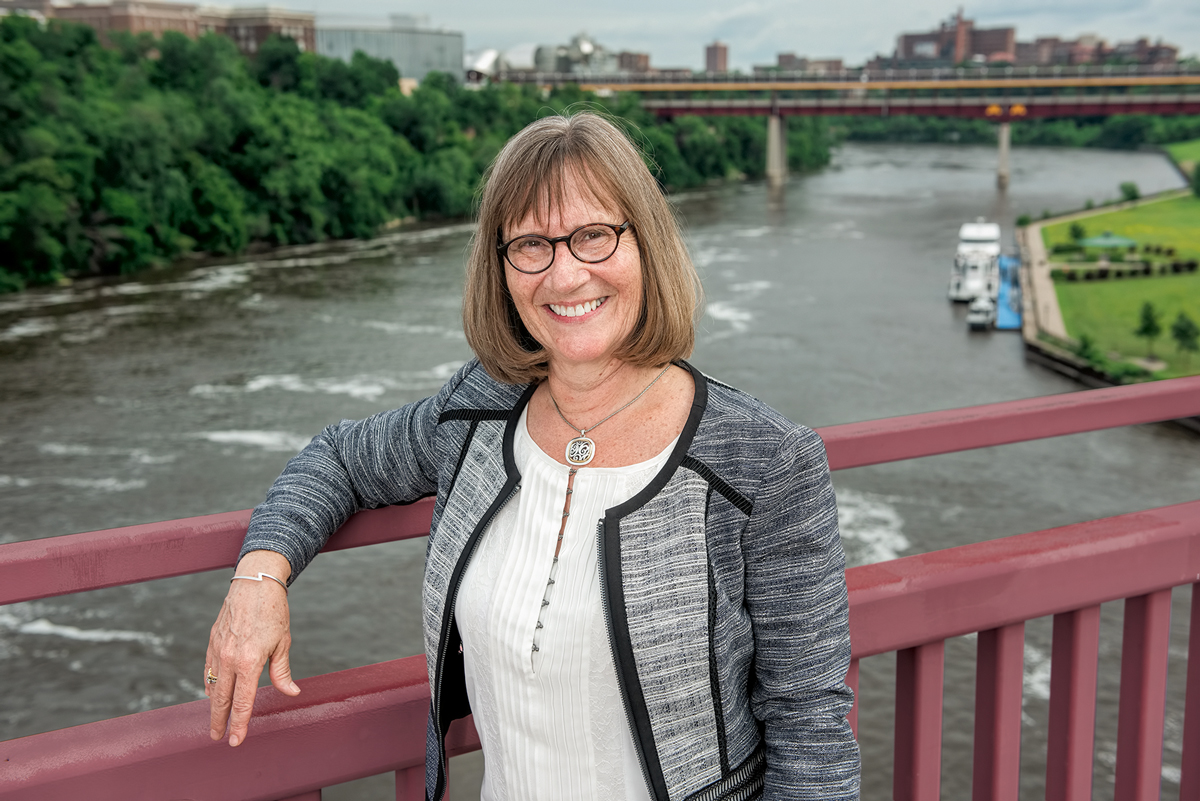Brenda Hartman, MSW ’89, was 32 years old and in the middle of earning two doctoral degrees at the U when a diagnosis of stage 4 ovarian cancer changed her life. Statistics at the time gave her a five percent chance of living 24 months.
Hartman’s oncologist was frank about her chances of survival—but, she recalls, he also did a remarkable thing: He gave her a glimmer of hope.
“He said, ‘I have a few tricks up my sleeve, and if you have a few up yours, let’s see what we can do,’” she remembers.
Thirty years later, Hartman is going strong. For 25 of those years, she has conducted a therapy practice working with people with cancer and other life-threatening illnesses. And in 2017, she received a Bush Foundation fellowship to write a curriculum to teach health care students how to talk with their patients about death.
In her practice and in volunteer work with cancer groups, Hartman has seen that health care providers many times avoid discussing death with their seriously ill patients. In fact, in 2016, the first year that physicians could be paid for having end-of-life conversations with Medicare patients, a study showed that only slightly more than one percent actually had the conversation, though 89 percent of patients said they would like to have it.
“Physicians don’t feel prepared to have the discussion,” says Hartman. “They are afraid of causing more pain, and they view death as defeat.”
The medicalization of the dying process has tried to make it neat and tidy, she says. Often, survivors are surprised and angry when a loved one dies and believe a medical mistake was made.
“How do we talk about this so healing can happen?” Hartman asks. “We need a cultural shift in the way we face death.”
Hartman believes the shift begins with students who are learning to be social workers, nurses, nurse practitioners, physician assistants, and MDs. As a volunteer for the Minnesota Ovarian Cancer Alliance, she has spoken at training programs for health care workers. The most powerful moment is always when she describes her doctor telling her she had cancer.
“I talk to them about my doc holding my hand and crying with me and telling me to prepare to die. That’s a hard thing to say. That’s a really difficult thing to hear. And how do you actually be present with somebody? And he was. And how critical that is,” she recalls with awe and gratitude.
Hartman calls her cancer a “twisted gift” because it has caused her to think every day about dying, which “makes life really different and beautiful, and it makes death not so scary,” she says. It also has enabled her to have healing conversations with her clients who are dying. Now she is eager to share her knowledge with health care students and professionals.
The curriculum she’s writing focuses on teaching skills that include different cultural, religious, and spiritual practices because, she says, when medical interventions will no longer help, “that’s when the medical team hands off to the patient’s belief system, to hospice and palliative care.”
Hartman is interviewing and videotaping elders so students can learn directly from them. Her goal is to see her curriculum used first at the University and then branch out to wherever health care professionals are being trained as well as practicing health care providers.
Learn more about Brenda Hartman and the School of Social Work.
Story by Jacqueline Colby | Photo by Jayme Halbritter | Fall 2018
 Brenda Hartman
Brenda Hartman